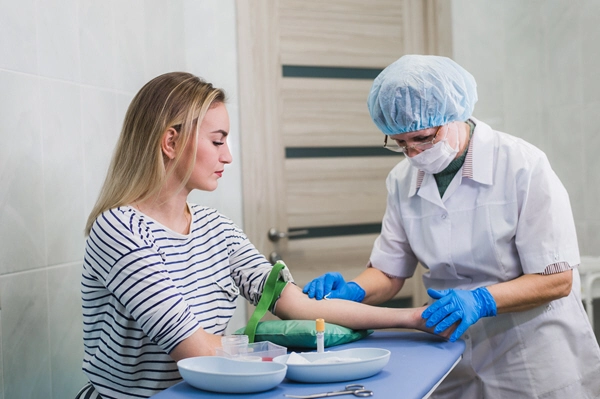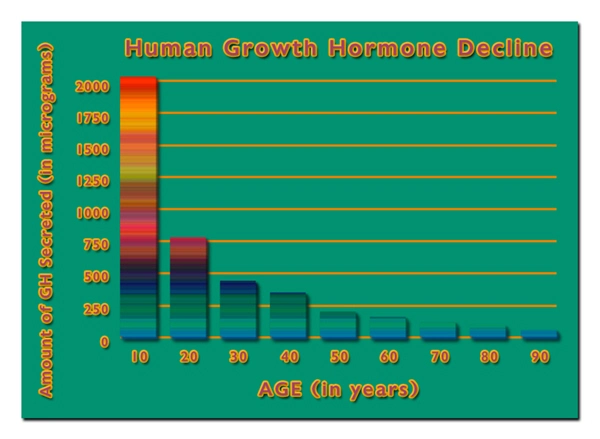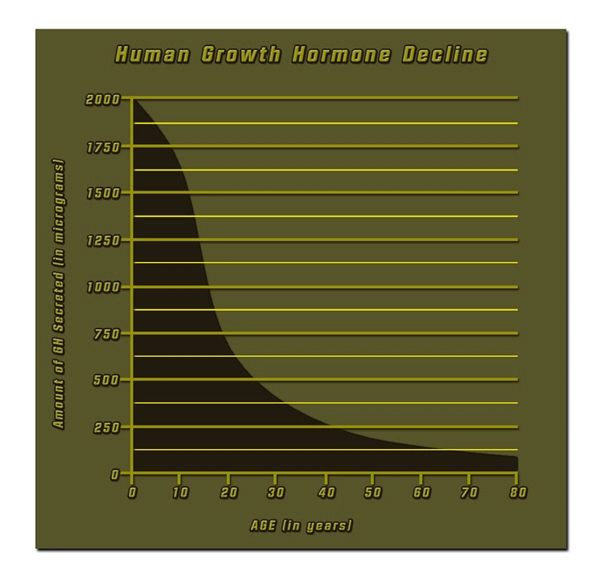Introduction to Male Eating Disorders
Eating disorders, often perceived as a predominantly female issue, are increasingly recognized among males in the United States. Conditions such as anorexia nervosa, bulimia nervosa, and binge eating disorder can severely impact the health and well-being of affected individuals. While psychological and nutritional interventions are commonly employed, the role of endocrinology in treating these disorders is gaining attention due to its potential to address underlying hormonal imbalances that may contribute to or exacerbate the conditions.
The Endocrine System and Eating Disorders
The endocrine system, which regulates hormones, plays a crucial role in maintaining metabolic balance, appetite, and overall health. In males with eating disorders, disruptions in hormone levels can lead to a variety of symptoms, including altered metabolism, changes in body composition, and reproductive health issues. For instance, low levels of testosterone, often seen in males with anorexia, can contribute to muscle wasting and decreased bone density, further complicating the clinical picture.
Hormonal Imbalances in Male Eating Disorders
Research has highlighted several hormonal imbalances prevalent in males with eating disorders. Hypogonadism, characterized by low testosterone levels, is a common finding and can result from the body's response to severe caloric restriction. Additionally, alterations in thyroid function, cortisol levels, and insulin sensitivity are frequently observed. These hormonal disruptions not only contribute to the physical symptoms of eating disorders but can also perpetuate the psychological aspects, such as mood disturbances and obsessive behaviors.
Endocrine Interventions for Male Eating Disorders
Endocrine interventions aim to restore hormonal balance and mitigate the adverse effects of eating disorders. Hormone replacement therapy (HRT), particularly with testosterone, can be beneficial for males with hypogonadism resulting from anorexia or other restrictive eating behaviors. By normalizing testosterone levels, HRT can help improve muscle mass, bone density, and overall energy levels, which are crucial for recovery.
Moreover, monitoring and managing thyroid function is essential, as hypothyroidism can exacerbate symptoms of fatigue and weight gain, which may further complicate the treatment of eating disorders. In cases where cortisol levels are dysregulated, as seen in some individuals with bulimia or binge eating disorder, targeted interventions may be necessary to restore normal adrenal function.
Collaborative Care in Treating Male Eating Disorders
Effective management of male eating disorders requires a multidisciplinary approach, integrating endocrinology with psychiatric and nutritional care. Endocrinologists can work closely with psychologists and dietitians to develop comprehensive treatment plans that address both the physical and psychological aspects of the disorder. Regular monitoring of hormone levels and metabolic markers is crucial to adjust treatment strategies as needed and to ensure optimal outcomes.
Challenges and Future Directions
Despite the promising role of endocrinology in treating male eating disorders, several challenges remain. Stigma and lack of awareness about eating disorders in males can lead to underdiagnosis and delayed treatment. Additionally, more research is needed to fully understand the complex interplay between hormonal imbalances and eating disorders in this population.
Future directions in this field may include the development of targeted hormonal therapies and the integration of advanced diagnostic tools to better identify and manage hormonal disruptions in males with eating disorders. By continuing to advance our understanding and treatment approaches, we can improve the quality of life for affected individuals and reduce the overall burden of these debilitating conditions.
Conclusion
The role of endocrinology in treating male eating disorders in the United States is a vital aspect of comprehensive care. By addressing hormonal imbalances, endocrinologists can significantly contribute to the recovery process, working alongside other healthcare professionals to provide holistic treatment. As awareness and research continue to grow, the potential for improved outcomes in this often-overlooked population becomes increasingly promising.

- Endocrinology and Sleep: Impact on American Men's Health and Disorders [Last Updated On: March 7th, 2025] [Originally Added On: March 7th, 2025]
- PCOS Challenges and Management in Transgender American Men [Last Updated On: March 17th, 2025] [Originally Added On: March 17th, 2025]
- Dietary Strategies for Optimal Endocrine Health in American Males [Last Updated On: March 18th, 2025] [Originally Added On: March 18th, 2025]
- Vitamin D's Crucial Role in Endocrine Health for American Males [Last Updated On: March 18th, 2025] [Originally Added On: March 18th, 2025]
- Hormonal Shifts in Aging American Men: Endocrinology Insights and Management Strategies [Last Updated On: March 19th, 2025] [Originally Added On: March 19th, 2025]
- Endocrine Health and Cancer Risk in American Men: Hormones, Disruptors, and Prevention Strategies [Last Updated On: March 19th, 2025] [Originally Added On: March 19th, 2025]
- Endocrinology's Impact on Male Sexual Health: Hormones, Disorders, and Holistic Treatment [Last Updated On: March 20th, 2025] [Originally Added On: March 20th, 2025]
- Autoimmune Endocrine Disorders in American Males: Symptoms, Diagnosis, and Treatment Strategies [Last Updated On: March 20th, 2025] [Originally Added On: March 20th, 2025]
- Managing Endocrine Disorders and Type 2 Diabetes in American Men: Strategies and Insights [Last Updated On: March 21st, 2025] [Originally Added On: March 21st, 2025]
- Hormonal Optimization for American Male Athletes: Enhancing Performance Safely [Last Updated On: March 21st, 2025] [Originally Added On: March 21st, 2025]
- Male Infertility and Endocrinology: Hormonal Insights and American Men's Health Strategies [Last Updated On: March 21st, 2025] [Originally Added On: March 21st, 2025]
- Lifestyle Choices Impacting Endocrine Health in American Men: Diet, Exercise, and More [Last Updated On: March 21st, 2025] [Originally Added On: March 21st, 2025]
- Endocrinology's Role in Weight Management for American Males: Hormonal Strategies [Last Updated On: March 21st, 2025] [Originally Added On: March 21st, 2025]
- Chronic Fatigue in Men: Endocrinology's Role and Treatment Strategies [Last Updated On: March 21st, 2025] [Originally Added On: March 21st, 2025]
- Endocrine Disruptors: Impact on American Males' Health and Mitigation Strategies [Last Updated On: March 22nd, 2025] [Originally Added On: March 22nd, 2025]
- Endocrine Health and Prostate Cancer: Insights for American Men [Last Updated On: March 23rd, 2025] [Originally Added On: March 23rd, 2025]
- Hormonal Influences on Men's Skin Health: Testosterone, Estrogen, and Cortisol Effects [Last Updated On: March 23rd, 2025] [Originally Added On: March 23rd, 2025]
- Endocrine Disorders and Autoimmune Diseases in American Men: Challenges and Management [Last Updated On: March 23rd, 2025] [Originally Added On: March 23rd, 2025]
- Managing Endocrine Disorders in Men with Heart Disease: A Comprehensive Approach [Last Updated On: March 23rd, 2025] [Originally Added On: March 23rd, 2025]
- Endocrine Health and Liver Function: Vital for American Males' Well-being [Last Updated On: March 23rd, 2025] [Originally Added On: March 23rd, 2025]
- Endocrinology and Kidney Health: Critical Insights for American Men's Well-being [Last Updated On: March 24th, 2025] [Originally Added On: March 24th, 2025]
- Endocrinology's Impact on Joint Health in American Men: Hormones and Mobility [Last Updated On: March 24th, 2025] [Originally Added On: March 24th, 2025]
- Gout in American Males: Endocrine Influences and Multidisciplinary Management Strategies [Last Updated On: March 24th, 2025] [Originally Added On: March 24th, 2025]
- Endocrine Health and Vision: Impacts on American Males [Last Updated On: March 24th, 2025] [Originally Added On: March 24th, 2025]
- Endocrine Health and Mental Well-being in American Males: A Comprehensive Overview [Last Updated On: March 24th, 2025] [Originally Added On: March 24th, 2025]
- Endocrine Health Impacts Respiratory Function in American Males: Insights and Management [Last Updated On: March 24th, 2025] [Originally Added On: March 24th, 2025]
- Endocrine Health's Impact on Hearing in American Males: Prevention and Management [Last Updated On: March 24th, 2025] [Originally Added On: March 24th, 2025]
- Alcohol's Impact on Endocrine Function and Health in American Males [Last Updated On: March 24th, 2025] [Originally Added On: March 24th, 2025]
- Hormonal Influences on Muscle Health in American Males: Testosterone, GH, IGF-1, Cortisol [Last Updated On: March 24th, 2025] [Originally Added On: March 24th, 2025]
- Exploring Endocrinology's Role in Treating ADHD in American Males [Last Updated On: March 25th, 2025] [Originally Added On: March 25th, 2025]
- Smoking's Impact on Endocrine Health in American Men: Risks and Cessation Strategies [Last Updated On: March 25th, 2025] [Originally Added On: March 25th, 2025]
- Endocrinology's Crucial Role in Treating Male Eating Disorders in the U.S. [Last Updated On: March 25th, 2025] [Originally Added On: March 25th, 2025]
- Hormonal Imbalances and Novel Endocrinological Treatments for Male Anxiety [Last Updated On: March 25th, 2025] [Originally Added On: March 25th, 2025]
- Hormonal Impacts on Hair Health in American Men: Androgens, Lifestyle, and Treatments [Last Updated On: March 25th, 2025] [Originally Added On: March 25th, 2025]
- Exploring the Impact of Hormonal Imbalances on Male Depression in the USA [Last Updated On: March 25th, 2025] [Originally Added On: March 25th, 2025]
- Sleep's Crucial Role in Endocrine Health for American Males [Last Updated On: March 26th, 2025] [Originally Added On: March 26th, 2025]
- Managing Endocrine Disorders in American Men with Neurological Conditions: Strategies and Insights [Last Updated On: March 26th, 2025] [Originally Added On: March 26th, 2025]
- Stress Impact on Male Endocrinology: HPA Axis, Hormones, and Management Strategies [Last Updated On: March 26th, 2025] [Originally Added On: March 26th, 2025]
- Endocrine Disorders in Men: Impact on Eye Health and Management Strategies [Last Updated On: March 26th, 2025] [Originally Added On: March 26th, 2025]
- Hormonal Influences on Men's Oral Health: Insights and Management Strategies [Last Updated On: March 27th, 2025] [Originally Added On: March 27th, 2025]
- Endocrine Disorders in American Men: Impact on Skin Health and Management Strategies [Last Updated On: March 27th, 2025] [Originally Added On: March 27th, 2025]
- PTSD in American Males: Exploring Endocrinological Interventions and Treatment Integration [Last Updated On: March 27th, 2025] [Originally Added On: March 27th, 2025]
- Endocrine-Gastrointestinal Interplay: Management Strategies for American Men [Last Updated On: March 28th, 2025] [Originally Added On: March 28th, 2025]
- Hormonal Imbalances and Foot Health: A Guide for American Men [Last Updated On: March 28th, 2025] [Originally Added On: March 28th, 2025]
- Hormonal Imbalances and Innovative Endocrinological Treatments for Male Insomnia in the USA [Last Updated On: March 28th, 2025] [Originally Added On: March 28th, 2025]
- Exercise Impact on Endocrine System in American Males: Hormonal Changes and Health Benefits [Last Updated On: March 28th, 2025] [Originally Added On: March 28th, 2025]
- Endocrine-Digestive Health Link: Hormones, Diet, and Exercise for American Males [Last Updated On: March 28th, 2025] [Originally Added On: March 28th, 2025]
- Hormonal Balance and Immune Health in American Men: A Comprehensive Guide [Last Updated On: March 28th, 2025] [Originally Added On: March 28th, 2025]
- Endocrine Health Impacts on Nail Conditions in American Males: Insights and Management [Last Updated On: March 29th, 2025] [Originally Added On: March 29th, 2025]
- Nutrition's Impact on Endocrine Health in American Males: Macronutrients, Micronutrients, and Diets [Last Updated On: March 29th, 2025] [Originally Added On: March 29th, 2025]
- Caffeine's Impact on Endocrine Function in American Males: Benefits and Risks [Last Updated On: March 30th, 2025] [Originally Added On: March 30th, 2025]
- Endocrinology's Role in Enhancing Bipolar Disorder Treatment for American Males [Last Updated On: March 30th, 2025] [Originally Added On: March 30th, 2025]
- Endocrine Disorders and Ear Health in American Men: A Holistic Management Approach [Last Updated On: April 1st, 2025] [Originally Added On: April 1st, 2025]
- Hormonal Impacts on Nasal Health in American Men: Insights and Management [Last Updated On: April 3rd, 2025] [Originally Added On: April 3rd, 2025]
- Hydration's Vital Role in Endocrine Health for American Males: A Comprehensive Overview [Last Updated On: April 3rd, 2025] [Originally Added On: April 3rd, 2025]
- Endocrine Health's Impact on Hand Health in American Males: A Comprehensive Analysis [Last Updated On: April 3rd, 2025] [Originally Added On: April 3rd, 2025]
- Endocrine System's Impact on Throat Health in American Males: Symptoms and Management [Last Updated On: April 6th, 2025] [Originally Added On: April 6th, 2025]
- Hormonal Imbalances and Cardiovascular Health in American Men: A Comprehensive Overview [Last Updated On: April 7th, 2025] [Originally Added On: April 7th, 2025]
- Managing Endocrine Disorders and Lung Health in American Men: A Holistic Approach [Last Updated On: April 7th, 2025] [Originally Added On: April 7th, 2025]
- Endocrinological Interventions Enhance Male Schizophrenia Treatment in the USA [Last Updated On: April 8th, 2025] [Originally Added On: April 8th, 2025]
- Endocrine System's Impact on Blood Health in American Males: A Comprehensive Guide [Last Updated On: April 9th, 2025] [Originally Added On: April 9th, 2025]
- Hormonal Influences on Brain Health and Cognitive Function in American Men [Last Updated On: April 9th, 2025] [Originally Added On: April 9th, 2025]
- Dietary Supplements' Impact on Endocrine Health in American Males: Risks and Benefits [Last Updated On: April 9th, 2025] [Originally Added On: April 9th, 2025]
- Managing Endocrine Disorders in American Men with Kidney Disease: A Collaborative Approach [Last Updated On: April 10th, 2025] [Originally Added On: April 10th, 2025]
- Mental Health's Impact on Endocrine Function in American Men: A Comprehensive Analysis [Last Updated On: April 10th, 2025] [Originally Added On: April 10th, 2025]
- Endocrine and Nerve Health in American Males: Hormones, Disorders, and Lifestyle Impact [Last Updated On: April 11th, 2025] [Originally Added On: April 11th, 2025]
- Exploring Endocrinology's Role in Treating Male Autism in the U.S. [Last Updated On: April 12th, 2025] [Originally Added On: April 12th, 2025]
- Exploring Endocrinology's Role in Managing Male OCD: A New Treatment Frontier [Last Updated On: April 15th, 2025] [Originally Added On: April 15th, 2025]
- Managing Endocrine Disorders and Heart Health in American Men: A Holistic Approach [Last Updated On: April 15th, 2025] [Originally Added On: April 15th, 2025]
- Endocrinology's Impact on Bone Health in American Men: Hormones and Holistic Care [Last Updated On: April 16th, 2025] [Originally Added On: April 16th, 2025]
- Endocrine Disorders Impact on Muscular Health in American Men: Diagnosis, Treatment, and Management [Last Updated On: April 16th, 2025] [Originally Added On: April 16th, 2025]
- Hormonal Therapies Enhance ADD Management in American Males: An Endocrinological Approach [Last Updated On: April 17th, 2025] [Originally Added On: April 17th, 2025]
- Endocrine Health and Liver Function: Critical Insights for American Males' Well-being [Last Updated On: April 18th, 2025] [Originally Added On: April 18th, 2025]
- Endocrine System's Impact on Joint Health in American Males: Hormones and Lifestyle Factors [Last Updated On: April 18th, 2025] [Originally Added On: April 18th, 2025]
- Aging and Endocrine Health in American Males: Hormonal Changes and Management Strategies [Last Updated On: April 19th, 2025] [Originally Added On: April 19th, 2025]
- Hormonal Influences on Skin Health in American Men: Androgens, Cortisol, Thyroid, Insulin [Last Updated On: April 19th, 2025] [Originally Added On: April 19th, 2025]
- Lifestyle Impact on Endocrine Health in American Males: Diet, Exercise, and Stress Management [Last Updated On: April 20th, 2025] [Originally Added On: April 20th, 2025]



List of USA state clinics - click a flag below for blood testing clinics.
Word Count: 600



















































